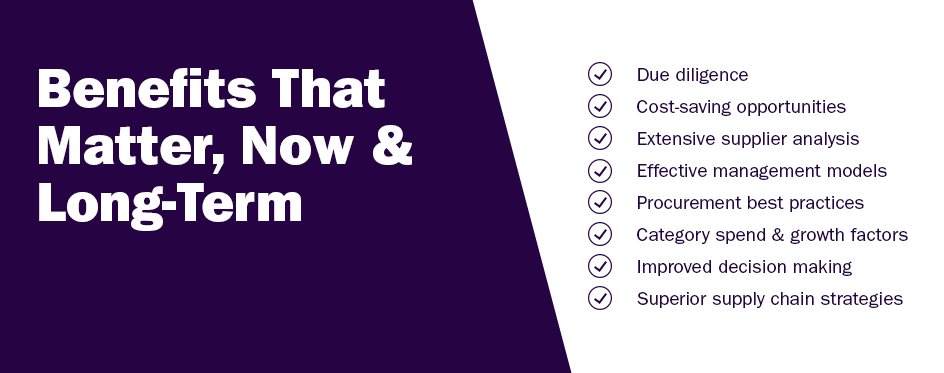Pharmaceutical companies are heavily depending on Contract Research Organizations to design decentralized clinical trials post Covid-19
Contract Research Organization Services Category Intelligence
The COVID-19 pandemic has increased the adoption of decentralized clinical trials due to its critical benefits of contactless virtual trials and improving the patient and physician experience. Clinical trial sponsors are continuously trying to make clinical trials faster and improve the experience for patients and physicians. A decentralized trial has emerged as a critical solution. It involves bringing an increasing proportion of a trial’s activities to the patients instead of using the traditional method of bringing patients to a trial site. As health-system resources became consumed by COVID-19-related care and travel became limited by physical distancing, patients’ access to trial sites was reduced by 80%. The number of monthly trials declined by 50% from January 2020 to April 2020, and 60% of CROs reported a significant reduction in trial activities in May 2020. In the face of such disruption, sponsors mobilized rapidly to preserve the continuity of care and data integrity, by adopting remote consent and patient monitoring, videoconference assessments, and at-home phlebotomy.
Many big CROs have already started adopting decentralized clinical trials. Parexel is leading the trend with more than 160 decentralized clinical trials and implemented around 200 remote patient engagement strategies (patient recruitment and retention platforms, e-visits/video dosing regimens, and patient insight projects) incorporated into trials.
Request a free sample copy or view report summary: CRO Procurement Intelligence Report
Contract Research Organization Category Intelligence Highlights:
-
Large CROs are collaborating with smaller regional CROs to benefit from their knowledge of the local market, and maintain high profit margins, low overhead costs, and their overall competitiveness in the market
-
The CRO market is moving toward consolidation due to increasing numbers of mergers and acquisition
-
Suppliers widely prefer approved provider operating models to reduce risks and improve the potential for value creation
CRO Cost Intelligence Highlights:
Grand View Research has identified the following key cost components for availing CRO services:
-
Clinical procedure
-
Regulatory affairs
-
Drug safety management
-
Drug logistics
-
Biological sample logistics
-
Clinical supplies logistics
-
Medical writing
-
Project management
-
Quality control
-
Pass-through costs
-
-
Site identification and selection
-
Site contracting and payments
-
Site initiation and activation
-
Site management
-
Onsite monitoring
-
Site close-out
-
Patient recruitment
-
Patient management
-
Study files/document management
-
Data management
-
Statistics
-
Communication with central CRO/sponsor
-
O&M insurance
-
Other costs
-
Taxes
-
Profit
Clinical procedure is the major cost component of a CRO, accounts for more than 45% of the total cost of service.
List of Key Suppliers in the CRO Category
-
Covance (Lab. Corp.)
-
IQVIA
-
Syneos Health
-
Parexel
-
PRA Health Sciences
-
PPD
-
Charles River
-
ICON
-
Wuxi AppTec
-
MedPace
Pricing & Purchase Options
Service Guarantee
-
Insured Buying
This report has a service guarantee. We stand by our report quality.
-
Confidentiality
Your transaction & personal information is safe and secure.
-
Custom research service
Design an exclusive study to serve your research needs.
-
24/5 Research support
Get your queries resolved from an industry expert.


